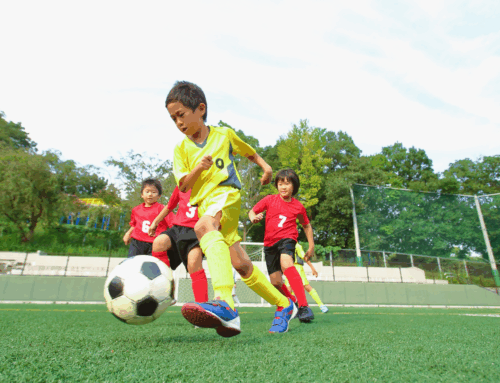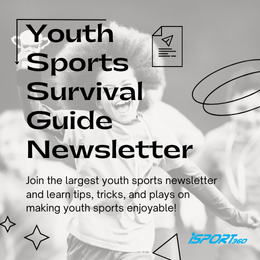Get our exclusive report. Download the iSport360 Club Switching Report Here – For Club Admins, Rec Leaders and Coaches.
How Youth Athletes Can Get Noticed by College Coaches
For talented youth athletes dreaming of playing at the collegiate level, getting noticed by college coaches can feel like an overwhelming challenge. With thousands of high school athletes competing for limited roster spots, standing out requires more than just athletic ability. Here’s a comprehensive guide to help young athletes maximize their chances of catching a college coach’s attention.
Master the Fundamentals First
Before worrying about exposure, athletes must excel at their sport’s basics. College coaches look for players who demonstrate exceptional fundamental skills, high basketball IQ, and consistent performance under pressure. Focus on perfecting technique, understanding game strategy, and developing mental toughness. Coaches can teach advanced tactics, but they expect recruits to already possess solid foundational skills.
Work with qualified coaches and trainers who can identify weaknesses and help refine your abilities. Video analysis of your gameplay can reveal areas for improvement that might not be obvious during live action. Remember, talent without fundamentals rarely translates to college success.
Academic Excellence Opens Doors
Strong academics are non-negotiable for most college programs. Coaches need players who can maintain eligibility and graduate, so they prioritize recruits with solid GPAs and standardized test scores. Start focusing on academics early in high school, not just during junior and senior years.
Take challenging courses that demonstrate your commitment to education. Many programs have minimum GPA requirements, and academic scholarships can supplement athletic funding. Student-athletes who excel in the classroom often have more recruiting options and leverage in negotiations.
Create a Compelling Athletic Resume
Develop a comprehensive athletic profile that includes statistics, achievements, awards, and relevant measurables like height, weight, and position-specific metrics. Include high-quality action photos and a brief personal statement outlining your goals and character.
Your resume should tell a story of consistent improvement and dedication. Highlight leadership roles, community service, and any unique experiences that set you apart from other recruits. Keep it concise but comprehensive, making it easy for coaches to quickly assess your potential.
Leverage Technology and Social Media
Create highlight videos showcasing your best plays, but ensure they’re professionally edited and demonstrate various skills relevant to your position. Keep videos between 3-5 minutes and lead with your strongest moments. Include game footage rather than just practice highlights to show performance under competitive pressure.
Maintain professional social media profiles that coaches would be comfortable sharing with their administration. Post training updates, academic achievements, and team accomplishments. Avoid controversial content that could harm your recruiting prospects.
Attend the Right Camps and Showcases
Research camps hosted by colleges you’re interested in attending. These events provide direct exposure to coaching staffs and demonstrate genuine interest in their programs. Attend camps that match your skill level – elite camps if you’re a top prospect, or regional camps if you’re still developing.
Showcases and tournaments in front of multiple college coaches can provide broad exposure, but targeted camps often yield better results for building relationships with specific programs.
Build Relationships with High School Coaches
Your high school coach can be your strongest advocate in the recruiting process. They have established relationships with college coaches and understand the recruiting landscape. Be coachable, demonstrate leadership, and maintain a positive attitude even during challenging times.
Ask your coach to help facilitate introductions to college programs and provide honest feedback about your collegiate prospects. They can also help you identify appropriate competition levels and schools that match your abilities.
Communicate Proactively with College Coaches
Research programs that align with your academic interests, athletic abilities, and personal preferences. Send personalized emails to coaches expressing genuine interest in their programs. Include your athletic resume, academic transcript, and highlight video.
Follow up consistently but respectfully. Coaches appreciate persistent athletes who demonstrate genuine interest, but avoid being overly aggressive or demanding immediate responses.
Compete at Appropriate Levels
Seek out competitive opportunities that challenge you while allowing you to showcase your abilities. This might include club teams, AAU circuits, or competitive leagues beyond high school sports. Playing against stronger competition demonstrates your ability to compete at higher levels.
Document your performances in these settings, as they often provide the most relevant evaluation opportunities for college coaches.
Stay Realistic but Ambitious
Research various collegiate levels (Division I, II, III, NAIA, Junior College) to understand where your skills might best fit. While maintaining ambitious goals, develop backup plans that still allow you to pursue your sport at the collegiate level.
Consider factors beyond athletics when evaluating programs, including academic offerings, campus culture, location, and long-term career prospects.
Timing Is Everything
Understand recruiting timelines for your sport, as they vary significantly. Some sports have early signing periods, while others recruit later in the high school career. Start the process early to maximize opportunities and avoid missing crucial deadlines.
The path to collegiate athletics requires dedication, strategic planning, and persistence. By focusing on athletic and academic excellence while actively promoting yourself to appropriate programs, you can significantly improve your chances of achieving your college sports dreams.
iSport360 is the only app that does it all for youth sports. For more information on what we do, click here.
About the author:
Amy Masters is a sports mom, coach, and club administrator. She has been coaching youth sports for more than 10 years. She started Jr Lions Field Hockey, the youth recreation program for the Hunterdon County community, growing it from 40 players in year 1 to 150 players by year 3. A few years later, she saw the love and competitiveness grow, and then started Omega Field Hockey Club serving NJ and PA players. Before coaching, she was a collegiate field hockey player for Lock Haven University. In her spare time (lol), she is head of marketing for iSport360 and the co-editor of the Youth Sports Survival Guide. The Youth Sports Survival Guide is the largest youth sports newsletter in the world.
Learn more or request a demo of our youth sports software that is helping teams improve communication, organization and player development.
June 4, 2025





